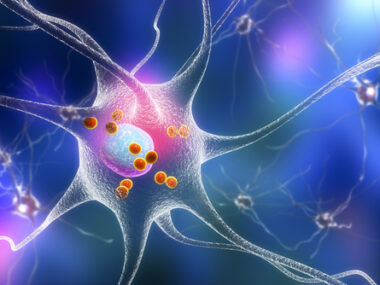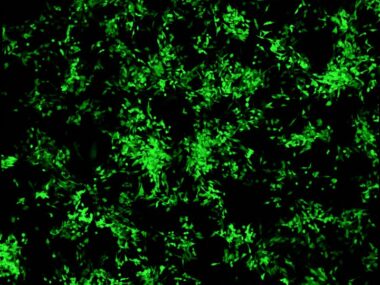Company’s goal: Therapies to clear proteins causing Parkinson’s
Booster Therapeutics opens to realize 'untapped potential of proteasome'
Written by |

Booster Therapeutics announced its launch and the start of work into therapeutics that improve the body’s ability to clear itself of the defective, disease-causing proteins that drive Parkinson’s disease and other neurodegenerative conditions.
The company, which is based in Berlin and whose opening was supported by $15 million in seed financing, reports to have assembled an “extensive library” of compounds that it intends to use in developing potential small molecule clearance therapies.
“The implications for solving major degenerative conditions, such as Parkinson’s and Alzheimer’s, are enormous,” Diogo Feleciano, PhD, Booster’s co-founder and chief scientific officer, said in a company press release. “We’re grateful for the support of our investors, who have enabled us to assemble a world-class team to realize the untapped potential of proteasome activation against a range of difficult-to-treat diseases.”
The proteasome, essentially, is a cell’s garbage disposal unit
The accumulation of abnormal protein clumps in brain cells, linked to a decline in the brain’s natural protein quality control mechanisms, is believed to play a key role in neurodegeneration. In particular, problems with the working of the proteasome — a cellular complex responsible for breaking down and disposing of damaged or unneeded proteins — has been implicated in the development of these toxic protein aggregates.
For instance, Parkinson’s is caused by the progressive dysfunction and death of dopaminergic neurons, cells in the brain that are responsible for making the signaling molecule dopamine. Its accumulating loss is attributed to abnormal protein clumps called Lewy bodies.
As dopaminergic neurons die, a progressive loss of nerve cell function and integrity follows, leading to the disease’s symptoms.
Current strategies targeting the machinery of protein degradation mainly focus on single disease-causing proteins, tagging them for proteasome degradation with ubiquitin, a small protein that serves as a marker informing proteasomes of the protein to degrade, the company reports. Complex diseases such as Parkinson’s, it adds, are driven by problems in multiple proteins.
Booster aims to achieve widespread degradation of damaged proteins using compounds that directly activate the proteasome, allowing it to recognize unfolded or misfolded proteins without the need for ubiquitin tagging.
“Proteasome activation offers important advantages over more limited conventional protein degradation approaches and provides a powerful lever to combat the effects of the many types of deviant proteins that can accumulate in cells when proteasome function declines through age or disease,” Feleciano said.
Booster reports having a library of compounds that could become therapies
Its library of identified small molecules came through its structure-based DGRADX platform, which is reported to combine proprietary methods for automated large-scale screening with advanced computational tools. Booster states that it has obtained an extensive range of compounds that can activate the proteasome, with therapeutic potential in several diseases.
“Booster exploits the cell’s universal protein surveillance machinery to drive restoration of protein homeostasis [internal equilibrium or stability] in various disease contexts,” said Patrick Trojer, chair of the company’s board of directors and CEO of Tiana Biomedicines. “The application potential of this therapeutic frontier is highly attractive … we see opportunities for both monotherapy and combination approaches where increased proteasome activity may enhance the efficacy of other therapeutics.”
The financing was led by life science investors Apollo Health Ventures and Novo Holding.
“Booster’s data support the ability of the … proteasome to safely, effectively and specifically degrade a wider set of pathological [disease-causing] proteins,” said João Ribas, PhD, Booster’s interim chief business officer, a member of the company’s board, and a principal at Novo Holdings. “Proteinopathy is core to many of the most challenging complex diseases, so the potential to address them with a single agent is incredibly promising and could reshape the treatment landscape.”



